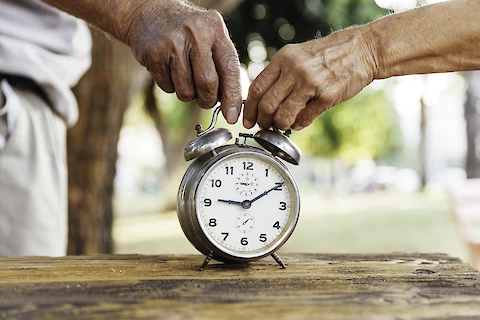
As we all know, daylight savings time is an annual event where we adjust our clocks forward by one hour to extend evening daylight during the warmer months. While this change might seem minor, it can significantly disrupt our daily routines and be particularly challenging for seniors. Learn practical suggestions for gradually adjusting their routines and discover the vital role of maintaining consistent sleep-wake patterns. Ensure the well-being of your senior loved ones during daylight saving time changes with this information in mind.
The Challenge of Daylight Savings for Seniors
Adjusting to daylight savings can be challenging for anyone. However, it can be particularly demanding for seniors. Our internal body clock, also known as the circadian rhythm, naturally changes as we age. Seniors may face difficulties adapting to adjustments in sleep patterns. Moreover, seniors often have a structured routine, and any shift in this schedule can be disruptive.
Adapting to a new sleep pattern can lead to sleep deprivation and increased fatigue, exacerbating existing health conditions and influencing seniors' mood and cognition. Understanding these potential challenges is the first step in helping your loved one transition smoothly through daylight savings.
Practical Tips for Gradually Shifting Routines
Gradual change is usually easier for our senior loved ones to handle than sudden change. Consider shifting bedtime and wake times forward or backward by 15-minute increments in the week preceding daylight savings. This gradual shift can help the body adjust more naturally to the change.
Next, consider adjusting meal times and other daily routines in line with the shifted sleep pattern. Ensuring that the seniors' surroundings are conducive to sleep is also of utmost importance. This could mean using blackout curtains in the bedroom, maintaining a cool room temperature, and reducing noise levels during sleep hours.
The Importance of Consistent Sleep Patterns
Maintaining consistent sleep patterns is fundamental to good health at any age, but it's particularly critical for older adults. Consistent sleep contributes to a range of health benefits, from improved heart health to better cognitive function. Moreover, a steady sleep pattern can enhance a senior's overall well-being and quality of life by helping them feel more energetic and less irritable during the day.
Senior Helpers Eastern Idaho Is Dedicated to Supporting Seniors During Daylight Savings Time
Helping seniors adjust to daylight savings time is integral to ensuring their well-being. Understanding their challenges, gradually shifting routines, and maintaining consistent sleep patterns can make this seasonal transition much easier for them.
At Senior Helpers Eastern Idaho, we fully commit to helping seniors and their caregivers during these transitions. Our dedicated team has the experience and understanding to assist in adjusting to daylight savings changes and maintaining regular sleep patterns.
If you're in Sugar City, Pocatello, Shelley, Rigby, or Ririe, don't hesitate to contact us at Senior Helpers Eastern Idaho. We're here to provide the necessary support and assistance to help your senior loved ones navigate the daylight savings change and beyond.